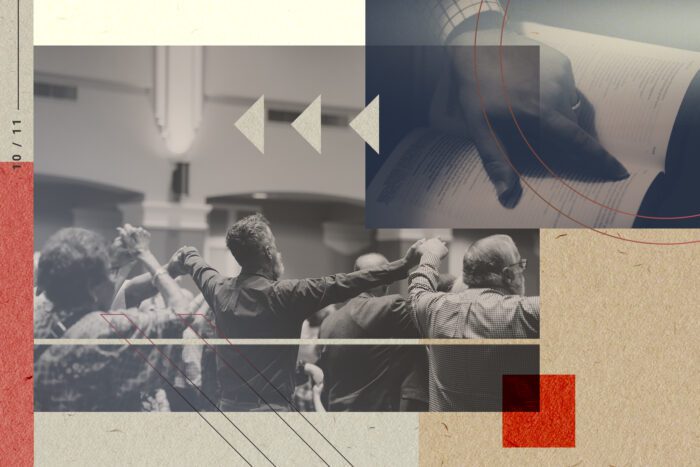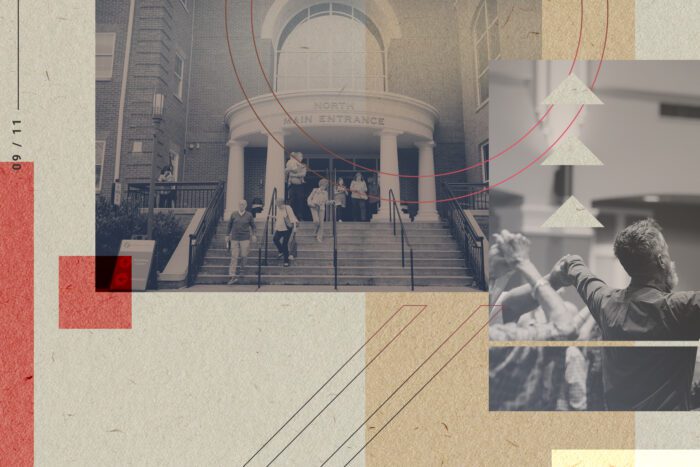To be painfully honest, I didn’t think much about the Bible’s counter-cultural proclamations about disability until I was 27 weeks pregnant. My doctor told me, “We need to talk.” I learned my firstborn child would be born healthy but missing one leg and one arm. Two years later, my spirit and thoughts on the topic were still ripening when my second daughter’s birth also compelled my doctor to tell me, “We need to talk.”
I’ll never forget the way her words stung: “Your daughter’s brain looks like Swiss cheese.”
Fastforward, and it’s been well over a decade since I began grappling with questions like, “How should Christians talk about disability?” “Is the church a welcoming place for everyone?” and “What does the Bible tell us about disability?”
If anyone finds it discomforting that these questions are not asked nearly enough–if they even get asked at all–I have good news.
You’ll find, as I did, that the Bible has quite a bit to say about disability. In fact, you’ll be encouraged that Scripture overwhelmingly displays disability in a uniquely positive perspective. The Christian approach to disability was as counter-cultural thousands of years ago as it is today.
God’s Power Through Limitation
Throughout the biblical story, God intentionally chose to show His power through the limitations, or disabilities, of His children. God’s chosen son, Jacob, had a limp his entire adult life (Genesis 32); God selected Moses to speak on His behalf despite Moses describing himself as “slow of speech and tongue” (Exodus 4:10), and consider how many of Jesus’ miracles were connected to someone with a disability. God clearly has a plan and purpose when it comes to human disabilities.
Yet time and again, we tend to approach disability with a negative and pessimistic view. In the story of the healing of the blind man in John 9, notice how one of the first questions posed to Jesus approaches disability from a position of fault-finding:
“As he went along, he saw a man blind from birth. His disciples asked him, ‘Rabbi, who sinned, this man or his parents, that he was born blind?'” (John 9:1-2).
Essentially, the disciples want to know what went wrong. They had internalized the idea that to be disabled meant someone had to have sinned or made a mistake. This mindset is not isolated to first-century life. As a mother with two daughters with differences, at some point, you just stop counting how many times you are asked, “What did you do?” or “What happened to them?” Or ask a person with a disability how often they hear, “What’s wrong with you?” as if something is innately faulty with them simply because of a disability.
Much like Jesus’s disciples, we still find ourselves trying to make sense of disability, and our minds default to the notion that disability is inherently bad. However, Jesus’s reaction to the disciples’ question challenges us to reframe our understanding when approaching this sensitive topic.
Instead of casting shame on the blind man or his parents, Jesus tells His disciples:
“Neither this man nor his parents sinned,” said Jesus, “but this happened so that the works of God might be displayed in him” (John 9:3).
Rather than framing the man’s blindness as a defect, Jesus reorients the entire conversation toward purpose. This man’s disability is not a punishment but a platform—that the works of God might be displayed in him. The phrase “might be displayed” could also be translated “be made manifest.”
Through this man’s disability, the work of God would be fully revealed.
God chose to reveal and manifest His power through a disability, not despite it.
This profound truth offers a transformative perspective. It suggests that disabilities are not the result of individual sin or divine punishment but can be occasions for the manifestation of God’s power and glory. In the case of the blind man, his healing displayed Jesus’s miraculous power and illuminated spiritual truths, challenging societal assumptions about suffering. This narrative reflects God’s view of disability as not diminishing a person’s value or potential for contributing to His purposes. Instead, it shows that God can use all circumstances, including those the world might see as limitations, as platforms for His glory.
Imagine if every believer held that view. How would that impact our perspective on disability and programs like special needs ministries with churches? From my own lived experience and estimation, the reason my family frequently encounters a negative view of disability comes from a misplaced understanding of the relationship between sin and disability.
Sin and Disability
John 9 challenges followers of Christ to reorient our approach to disability. It is undeniable that because of the Fall in Genesis 3 and the entrance of sin into the world, humanity lives with certain realities until the day Christ returns and makes all the sadness of sin undone. Illness, disease, and hardship are inescapable realities of living in a fallen world.
But we must learn to separate the idea of something existing because of sin from equating it with sin itself. The difference is crucial. A person may have a disability because of something sinful done by others (such as being permanently disabled by a drunk driver), or a person may have a disability due to absolutely nothing they or anyone around them did (such as being born with a genetic mutation). Both are impacted by sin in the world, but their disabilities are not inherently sinful.
Our vulnerabilities, rather than disqualifying us, often become the very conduits through which God’s power shines brightest. By embracing our weaknesses, we create space for God’s strength to be displayed, affirming that His greatness is not diminished but magnified in our limitations. The story of the blind man in John 9 invites us to see disability through a lens of divine possibility and purpose, recognizing that every individual, regardless of limitations, is a vessel through which God’s works can be wonderfully revealed.
Dignity and Disability
Historically, societal attitudes toward disability have often been marred by misconceptions, stigma, and undervaluation. The church is certainly not immune to this. These attitudes, stemming from a lack of understanding and empathy, continuously fail to recognize the full scope of the image of God in every person.
Understanding disability within the framework of the image of God has profound implications for Christian ethics and community life. It calls for a response that upholds the dignity of individuals with disabilities, recognizing them as equal and integral members of the body of Christ (1 Corinthians 12:22-24). This perspective demands more than mere inclusion; it requires active engagement, accommodation, and affirmation of the unique ways people with disabilities embody God’s image.
Furthermore, it challenges the church to be a place where societal misconceptions about disability are dismantled and where the full, diverse expression of God’s image is celebrated. A Christian approach to dignity and disability recognizes the full value of each member of the body of Christ as a necessary and vital part. Within a biblical framework, individuals with disabilities are not merely objects of ministry but are vital participants in the ministry of God’s community.
This understanding calls for a transformative view that recognizes and celebrates the unique reflection of God’s image in every person. It is a call to action for both individuals and communities to actively affirm and uphold the dignity of all, creating a society that mirrors the inclusive and diverse nature of the Kingdom of God. By doing so, we honor not only each individual but also the God in whose image we are all made.
Jesus taught that the blind man of John 9 was born so that the power of God—His glory and greatness—would be on full display through him. Through the blind man’s testimony of God’s power, we, too, have the opportunity to experience ultimate healing. The great miracle of John 9 was not just the physical healing of the blind man but, ultimately, his spiritual healing.
Our invitation is to join alongside him, wonder at the power of Jesus Christ, and proclaim with conviction, “Lord, I believe.”








